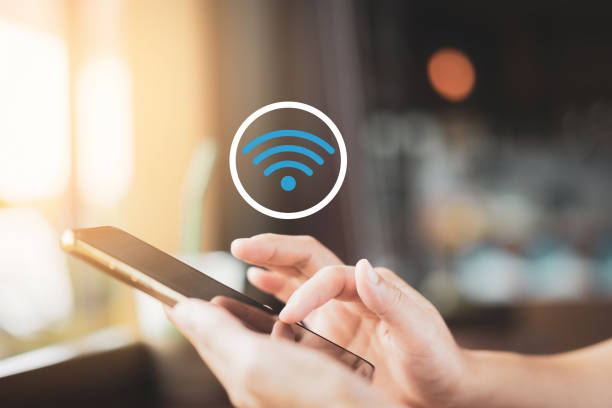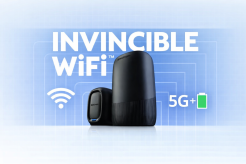Powerline Internet vs. Wi-Fi: Which Is More Cost-Effective?

Two popular options that homeowners often consider are powerline internet and Wi-Fi. While Wi-Fi has become the standard for wireless internet access, powerline internet offers a unique alternative that might be more suitable for certain situations. But which one is more cost-effective? In this blog post, we'll explore the pros and cons of both powerline internet and Wi-Fi, helping you determine which option offers the best value for your money.
What Is Powerline Internet?
Powerline internet uses your home's existing electrical wiring to transmit data. By plugging an adapter into a power outlet near your router and another adapter into a power outlet near your device, you can create a wired internet connection that bypasses the need for traditional Ethernet cables. This technology can be especially useful in homes where Wi-Fi signals struggle to reach certain areas.
What Is Wi-Fi?
Wi-Fi, short for Wireless Fidelity, is a technology that allows devices to connect to the internet wirelessly using radio waves. Most households today use Wi-Fi to access the internet, as it offers convenience and the ability to connect multiple devices without the need for physical cables. However, Wi-Fi can sometimes be affected by obstacles like walls or interference from other electronic devices, leading to weaker signals in certain areas of your home.
Comparing the Costs: Powerline Internet vs. Wi-Fi
Initial Setup Costs
Powerline Internet:
The cost of setting up a powerline internet connection typically includes purchasing powerline adapters. These adapters can range in price, but they are generally affordable, especially if you need to extend internet access to areas of your home that Wi-Fi struggles to reach. However, if you need multiple adapters, the costs can add up.
Wi-Fi:
Setting up a Wi-Fi network involves purchasing a router, which can vary in price depending on the model and features. If you already have a router provided by your internet service provider, you might not need to purchase one separately. However, in larger homes, you might need to invest in additional equipment like Wi-Fi extenders to ensure full coverage.
Maintenance and Operational Costs
Powerline Internet:
Once set up, powerline internet typically requires little maintenance. The adapters use minimal electricity, so they won't significantly impact your energy bill. However, if your home's electrical wiring is outdated or has issues, you might experience connectivity problems, which could require additional costs to resolve.
Wi-Fi:
Wi-Fi networks generally require ongoing maintenance, especially if you're experiencing issues like slow speeds or weak signals. You might need to upgrade your router periodically or invest in additional equipment like extenders or mesh networks to maintain strong Wi-Fi coverage throughout your home. These costs can add up over time, especially in larger homes.
Speed and Performance
Powerline Internet:
The speed of powerline internet can vary depending on the quality of your home's electrical wiring and the distance between adapters. In some cases, powerline internet can offer speeds comparable to a wired Ethernet connection, but in other situations, it might be slower, particularly if your wiring is old or there is interference from other devices.
Wi-Fi:
Wi-Fi speeds can also vary depending on factors like the quality of your router, the distance from the router, and the presence of obstacles like walls. In general, Wi-Fi offers more flexibility in terms of device placement, but it might not be as reliable as a wired connection, especially in areas with weak signal coverage.
Scalability
Powerline Internet:
Powerline internet can be easily expanded by adding more adapters to your home. However, the performance might degrade if too many adapters are used or if they are placed too far apart. It's also important to note that not all powerline adapters are compatible with each other, so you might need to purchase adapters from the same brand to ensure compatibility.
Wi-Fi:
Wi-Fi networks are highly scalable, allowing you to connect multiple devices without the need for additional hardware. If you find that your Wi-Fi coverage is lacking, you can easily add extenders or upgrade to a mesh network to improve coverage. However, this scalability can come with additional costs, especially if you need to invest in higher-end equipment.
Long-Term Value
When considering the long-term value of powerline internet versus Wi-Fi, it's important to think about your specific needs and how you use the internet in your home.
Powerline Internet:
If you have a large home with thick walls that block Wi-Fi signals, or if you need a reliable wired connection for gaming or streaming, powerline internet might be a more cost-effective solution in the long run. However, if your electrical wiring is outdated, you might need to invest in upgrades to ensure consistent performance, which could increase costs.
Wi-Fi:
For most households, Wi-Fi offers greater flexibility and convenience, making it the preferred choice. However, if you're experiencing issues with Wi-Fi coverage or speed, you might need to invest in additional equipment, which can increase costs over time. Regular upgrades to your router and network equipment can also add to the long-term cost.
Life Scenarios: When to Choose Powerline Internet
Powerline internet is an excellent option for certain scenarios, particularly when Wi-Fi falls short. For example:
- Homes with thick walls or multiple floors: Wi-Fi signals can struggle to penetrate thick walls or reach multiple floors in a home, making powerline internet a viable alternative.
- Gaming or streaming: If you need a stable, low-latency connection for gaming or streaming, powerline internet can provide a more reliable wired connection.
- No desire to run Ethernet cables: If you want a wired connection without the hassle of running Ethernet cables throughout your home, powerline internet is a convenient solution.
If you're facing challenges with your current Wi-Fi setup, you might also want to explore other broadband alternatives for your home internet to find the best solution.
Life Scenarios: When to Stick with Wi-Fi
Wi-Fi remains the go-to choice for most households due to its ease of use and flexibility. Consider sticking with Wi-Fi if:
- You have a small to medium-sized home: In smaller homes, Wi-Fi is usually sufficient for covering all areas without the need for additional equipment.
- You prefer wireless freedom: Wi-Fi allows you to move freely with your devices, making it ideal for those who value mobility.
- You have modern, high-quality equipment: If you have a good router and minimal interference, Wi-Fi should meet all your internet needs without issue.
If you're unsure about how much speed you need for your specific internet activities, using a tool like the Internet Speed Needs Calculator can help you make an informed decision.
Conclusion
Both powerline internet and Wi-Fi have their advantages and drawbacks, and the best choice for you will depend on your specific needs and home setup. Powerline internet can be a cost-effective solution in homes where Wi-Fi signals are weak or unreliable, particularly if you're looking for a stable wired connection without running cables. On the other hand, Wi-Fi offers greater flexibility and convenience, making it the preferred choice for most households.
Ultimately, the most cost-effective option will depend on your home's layout, the quality of your electrical wiring or Wi-Fi equipment, and how you use the internet. By carefully considering these factors and exploring the tools available, you can make an informed decision that offers the best value for your money.
Related Posts
 Internet Bundles
Broadband Deals
Subscription
mobile phone plans
Internet Bundles
Broadband Deals
Subscription
mobile phone plans
Metro by T-Mobile Add-Ons Explained: Hotspot, International Calling & More
Learn how Metro by T-Mobile add-ons work, including hotspot data, international calling, and device protection. Compare features and choose the right mobile extras.
 Internet Bundles
Internet Bundles
Facts About Youtube That May Surprise You
Discover updated YouTube facts, user statistics, revenue insights, and video trends shaping global content consumption and digital marketing strategies today.
 Internet Bundles
Broadband Installation
cheap internet deals
Internet Bundles
Broadband Installation
cheap internet deals
Simple Steps to Self-Install Spectrum Internet Fast: 2026 Guide
Learn how to self-install Spectrum Internet step-by-step. Save installation fees, activate service fast, and optimize WiFi performance with this complete guide.
 Internet Bundles
Internet Bundles
Why High-Speed Business Internet Matters More Than Ever
Discover why high-speed business internet drives productivity, security, and revenue growth, and how to choose the right provider for long-term success.
 Wifi
Technology
Wifi
Technology
Spectrum INVINCIBLE WiFi: Stay Connected During Outages
Discover how Spectrum INVINCIBLE WiFi combines WiFi 7, 5G backup, and battery protection to keep your home internet running during outages and disruptions.